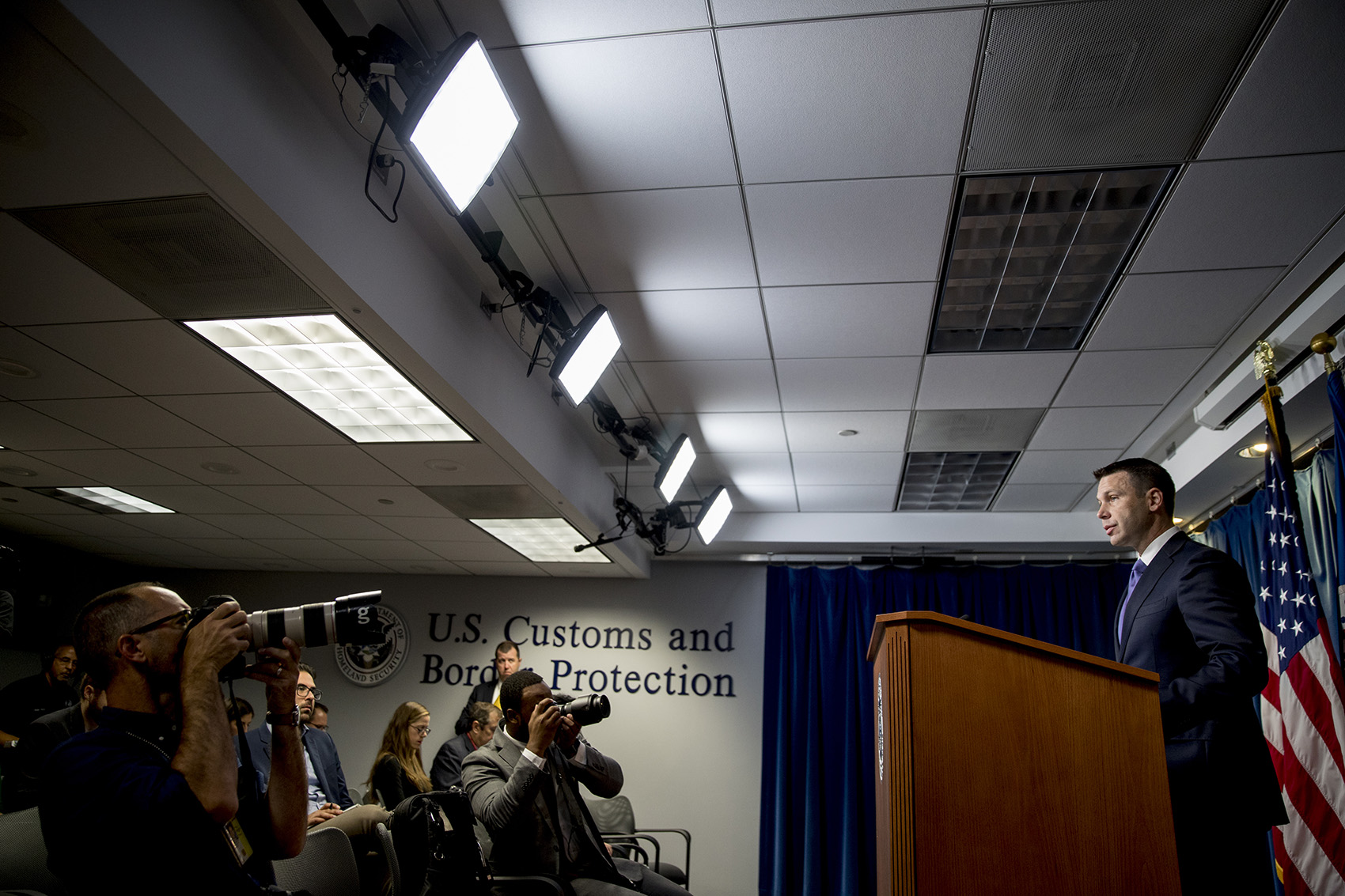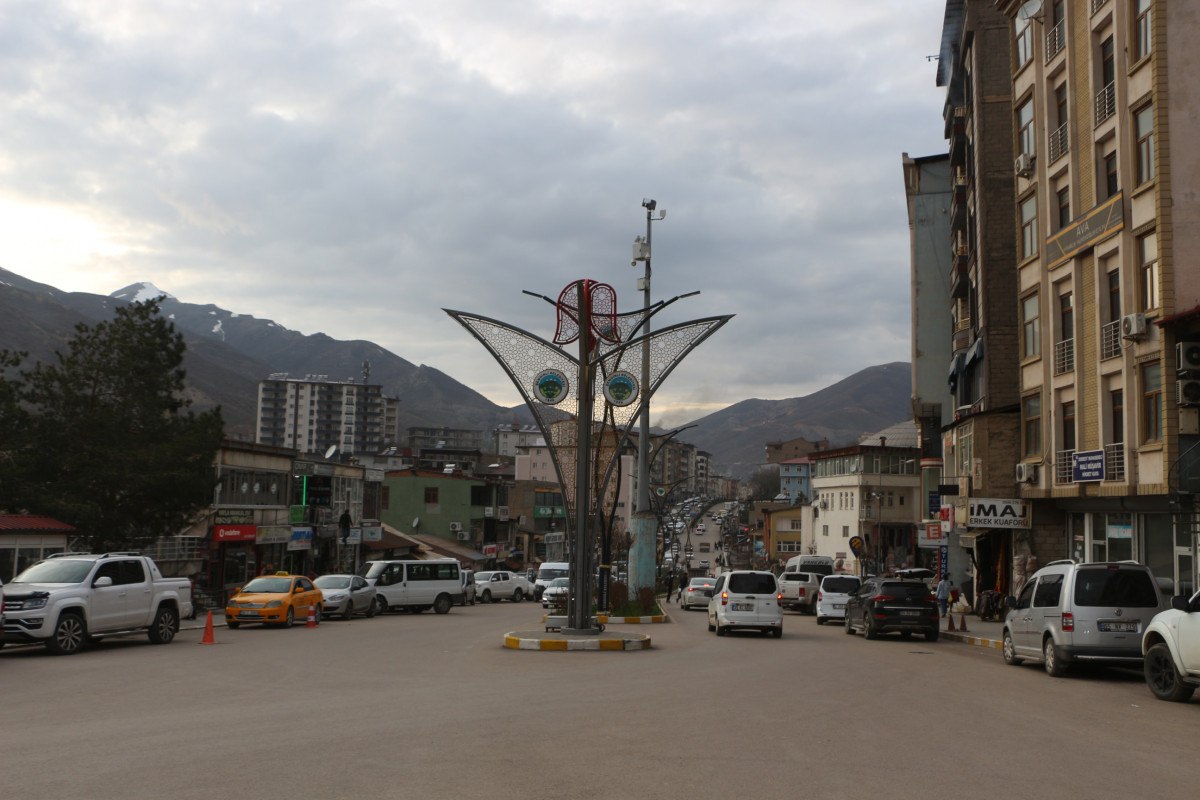Proposed Changes To Migrant Detention Review Under Trump

Table of Contents
Increased Detention Times and Due Process Concerns
The proposed changes significantly increased detention times for migrants awaiting immigration proceedings. This extended period of confinement had profound implications for individuals and families.
-
Impact on Families and Children: Prolonged detention, particularly for families with children, caused significant emotional distress and disruption to family life. Children were separated from parents, impacting their physical and mental health. The trauma associated with prolonged detention in overcrowded facilities could have long-lasting effects.
-
Due Process Violations: The extended detention periods raised serious concerns about due process rights. Many argued that indefinite detention without a clear timeline for review violated fundamental legal protections afforded to individuals under U.S. law. The lack of timely access to legal counsel further exacerbated this issue.
-
Legal Challenges: The increased detention times faced numerous legal challenges. Lawsuits were filed arguing that the policies violated international human rights standards and domestic laws concerning due process. Attorneys argued that prolonged detention without a meaningful opportunity for release constituted cruel and unusual punishment.
-
Relevant Case Law: Several court cases challenged the legality of extended detention, referencing prior rulings emphasizing the need for swift and fair immigration proceedings. These cases highlighted the tension between national security concerns and the protection of individual rights within the immigration system. Cases like Jennings v. Rodriguez (2018) played a crucial role in shaping the legal landscape surrounding immigration detention.
Changes to Credible Fear Interviews and Asylum Claims
Proposed alterations to the credible fear interview process significantly impacted asylum seekers' chances of success. These changes included stricter standards for demonstrating a well-founded fear of persecution.
-
Impact on Asylum Seekers: The stricter criteria made it considerably more difficult for asylum seekers to demonstrate a "credible fear" of persecution in their home countries. This resulted in a higher number of asylum claims being denied at the initial stage, limiting access to further legal proceedings.
-
Impact on Refugees: These changes directly impacted refugees fleeing persecution, war, or violence. Many individuals with legitimate claims for asylum were denied based on the stricter interpretation of the credible fear standard. This created a bottleneck in the system, leaving vulnerable individuals in limbo.
-
Role of Immigration Judges: Immigration judges played a critical role in applying these new, more stringent standards. The consistency of application across different judges was questioned, raising concerns about potential bias and inconsistencies in the asylum process. The increased workload for immigration judges also contributed to processing delays.
-
Asylum Claim Acceptance Rates: Statistics comparing asylum claim acceptance rates before and after the implementation of these changes showed a significant decline in the number of successful claims. This decline highlighted the impact of the policy changes on access to asylum in the United States.
Expansion of Migrant Detention Facilities and Resources
The proposed expansion of migrant detention facilities raised significant concerns about costs, conditions, and human rights.
-
Cost Implications: The financial burden of expanding detention facilities, including construction, staffing, and operational costs, was substantial. The allocation of resources to detention rather than alternative solutions like community-based alternatives was widely criticized.
-
Conditions in Detention Centers: Reports from human rights organizations documented poor conditions in many detention centers, including overcrowding, inadequate healthcare, and a lack of access to legal representation. These conditions negatively affected the physical and mental well-being of detainees.
-
Overcrowding and Healthcare: Overcrowding in detention centers created unsanitary conditions and increased the risk of infectious diseases. Inadequate access to healthcare exacerbated the health risks faced by detainees, leading to concerns about potential health crises.
-
Human Rights Violations: The combination of prolonged detention, poor conditions, and limited access to legal resources raised serious concerns about human rights violations within the U.S. immigration system. International human rights standards were often cited in criticisms of the proposed expansions.
Opposition and Public Response to Proposed Changes
The proposed changes faced widespread opposition from human rights organizations, advocacy groups, and the public.
-
Protests and Demonstrations: Numerous protests and public demonstrations were organized across the country to voice opposition to the changes. Activists and community groups expressed concerns about the impact of the policies on migrants' rights and the asylum system.
-
Statements from Political Figures and Organizations: Prominent political figures, human rights organizations, and advocacy groups issued statements condemning the proposed changes. These statements highlighted concerns about due process, human rights, and the fairness of the asylum system.
-
Media Coverage and Public Opinion: The proposed changes received extensive media coverage, sparking widespread public debate and raising awareness about the issues surrounding immigration detention. Public opinion surveys often showed strong opposition to the proposed changes.
-
Relevant News Articles and Reports: Numerous news articles and reports from reputable sources documented the opposition to the proposed changes, providing detailed accounts of protests, legal challenges, and public opinion. Links to these resources are vital for further research.
Conclusion
The proposed changes to the Migrant Detention Review process under the Trump administration significantly impacted migrants' rights and the asylum system. The alterations to detention times, credible fear interviews, and facility expansions raised serious concerns about due process and human rights. These changes resulted in prolonged detention, stricter asylum criteria, and poor conditions in detention centers.
Understanding the complexities of the Migrant Detention Review process is critical for informed civic engagement. Stay informed about ongoing developments in immigration policy and advocate for humane and just treatment of migrants. Further research into the Migrant Detention Review and its implications is strongly encouraged.

Featured Posts
-
 John Wick Fact Checking His Appearances Throughout The Film Series
May 11, 2025
John Wick Fact Checking His Appearances Throughout The Film Series
May 11, 2025 -
 Become Baba Yaga A Guide To The John Wick Experience Las Vegas
May 11, 2025
Become Baba Yaga A Guide To The John Wick Experience Las Vegas
May 11, 2025 -
 Hakkarideki Hakim Ve Savcilarin Katildigi Iftar Programi
May 11, 2025
Hakkarideki Hakim Ve Savcilarin Katildigi Iftar Programi
May 11, 2025 -
 The Adam Sandler Net Worth Story A Comedy Kings Financial Empire
May 11, 2025
The Adam Sandler Net Worth Story A Comedy Kings Financial Empire
May 11, 2025 -
 Watch Celtics Vs Knicks Live Free Stream Tv Channel Guide
May 11, 2025
Watch Celtics Vs Knicks Live Free Stream Tv Channel Guide
May 11, 2025
